General information
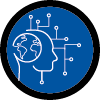
- Duration : 2 years
- Place : Nantes
- Language : English and French
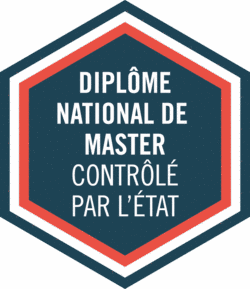

Integrated into the Nantes Science and Technology Center and the MaSTIC (Mathematics, Digital, Information and Communication Sciences and Technologies) University Research School (EUR), the Master and Doctorate in Smart Computing (CMD SMART) programme trains high-level engineers and researchers capable of working at the cutting edge of digital technology and pushing its limits. The programme awards two degrees:
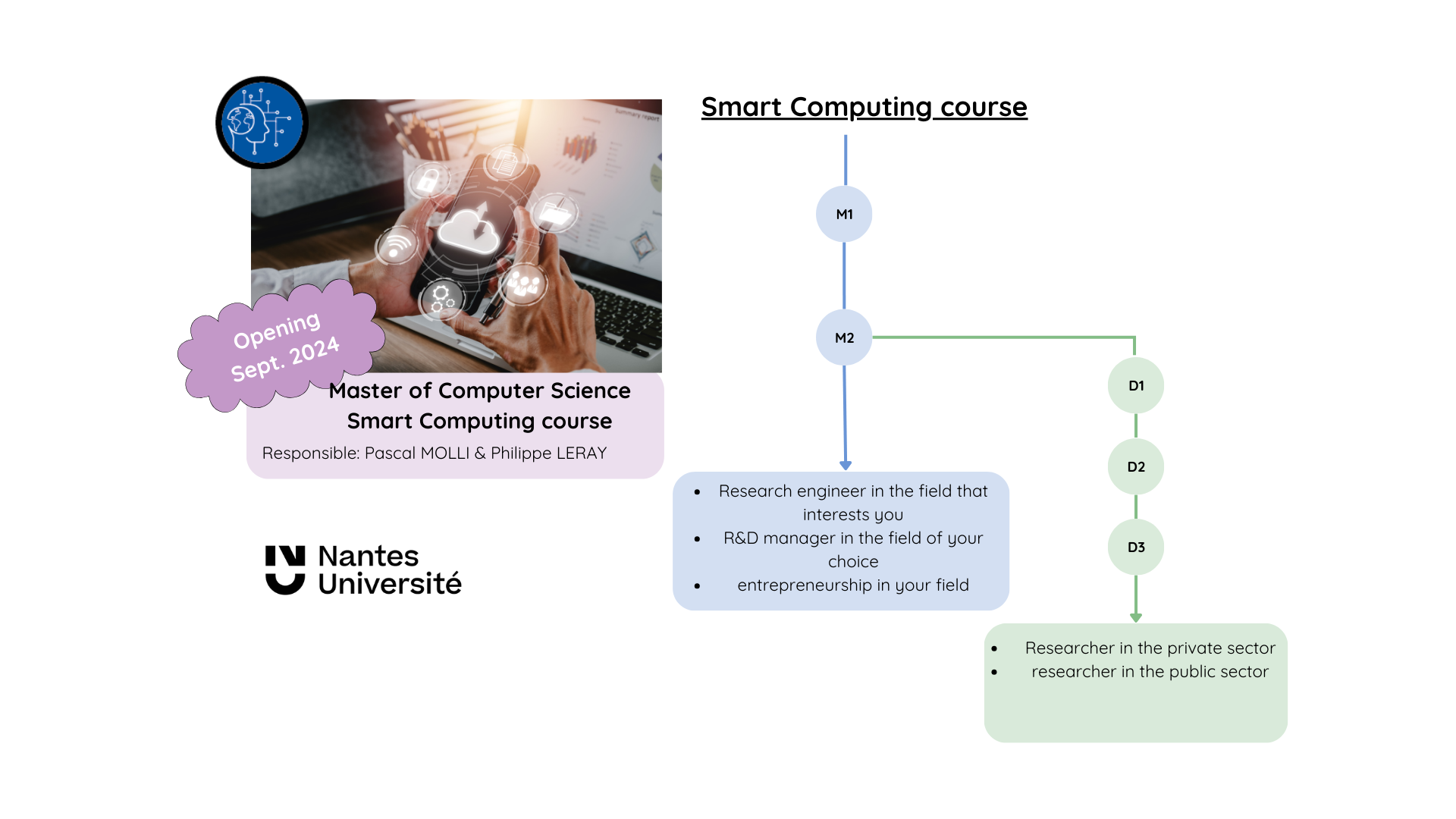
Smart Computing is a multidisciplinary field where advanced computing methods and technologies are combined with engineering approaches to create systems, applications and new services that meet the needs of society. Everything we envision in real society now has its digital twin, enabling greater efficiency, personalization, security and sustainability. For example, smart cities could improve the quality of life of their inhabitants while promoting sustainability, efficiency and economic growth; smart power grids improve the efficiency, reliability and sustainability of electrical energy distribution and consumption ... etc.
Working on the smart evolution of society requires not only high-level engineering skills, but also new knowledge. The ability to build new knowledge and use it to meet the new needs of society is at the heart of the Smart Computing curriculum.
The student will be integrated into the LS2N Research Unit, the largest public research unit in Nantes and the Pays de la Loire region.
Smart Computing systems are at the crossroads of most major fields of computer science and engineering (computational intelligence, machine learning, data analysis, software engineering, computer vision, internet technologies, distributed computing and sensing, pervasive computing, social computing, computer security...) and many interdisciplinary applications linking computer science to more traditional scientific disciplines (biology, medicine, chemistry, materials, physics and economics). The LS2N is connected to the local socio-economic sphere and to other research laboratories to conduct its multidisciplinary research.
Research immersion allows students to gradually discover key topics and people, to define a research project in a given field and to start producing knowledge in this field. The research mentor helps students understand and navigate the opportunities offered by the LS2N.




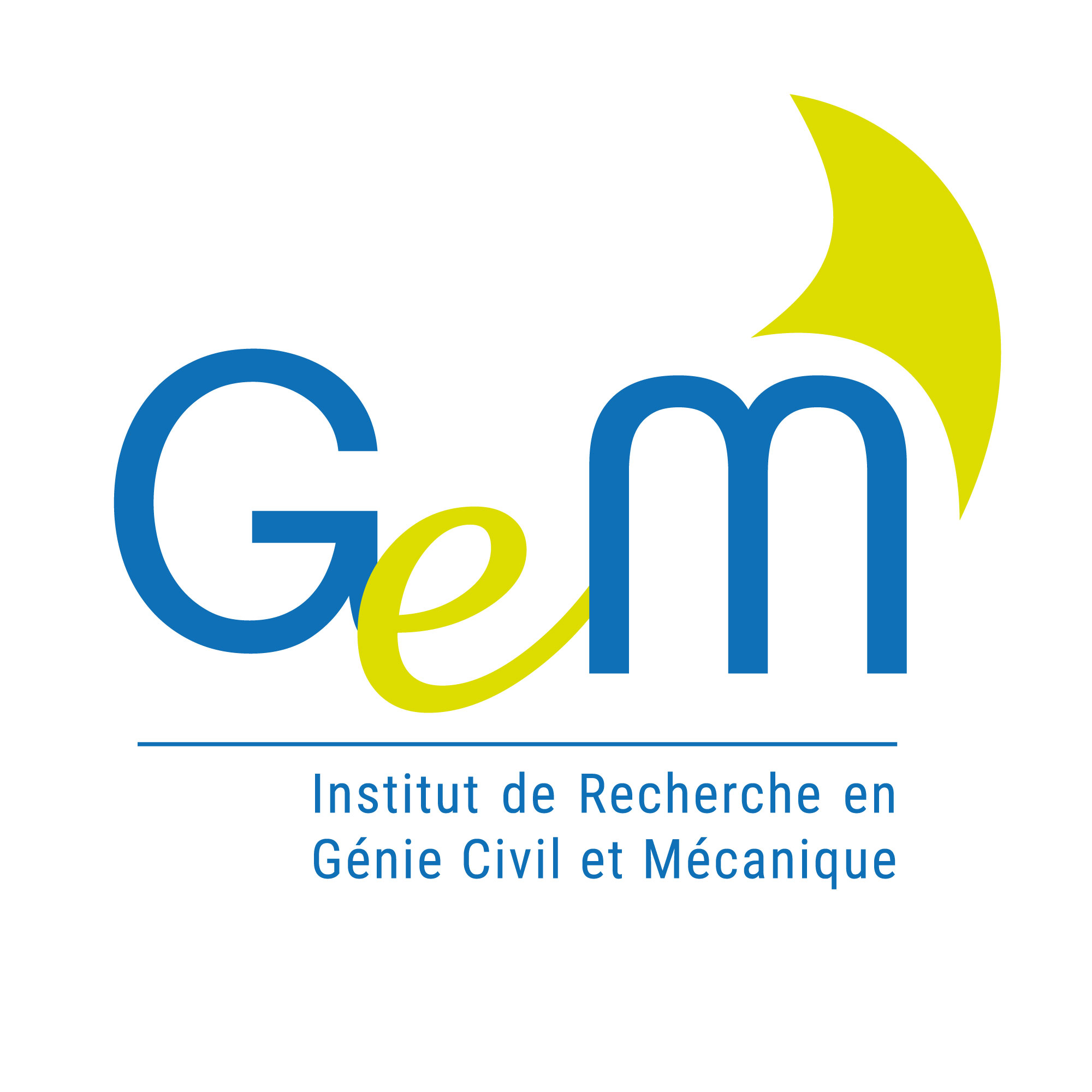
CMD Smart Computing is a training course that is very open to international audiences:
– International attractiveness of the training at the levels thanks to teaching provided mainly in English (100% in master's from 2026), a partnership policy allowing the integration of excellent foreign students.
– Support for short, medium and long-term outgoing mobility is possible to allow 100% of students enrolled in the training to benefit from at least one international experience during their course, either for an internship or for a study trip. There are several exchange programs for international mobility (Erasmus+, BCI, ISEP, etc.) as well as agreements set up between the Faculty of Science and Technology and many foreign universities. Find out more.
– A Welcome Grant of €1,000 for selected international master's students to contribute to their installation costs in Nantes. (excluding French nationality; international students previously enrolled in a French higher education institution (university, school, etc.) are not eligible)
Do not hesitate to contact us for more information on all the options!
The criteria and expectations are defined at the level of the Master’s degree.
Students can join the Programme either at the Master’s level or at the PhD’s level. After the Master's, students who have obtained the master’s degree can apply for PhD or pursue other career paths as research and innovation engineer.
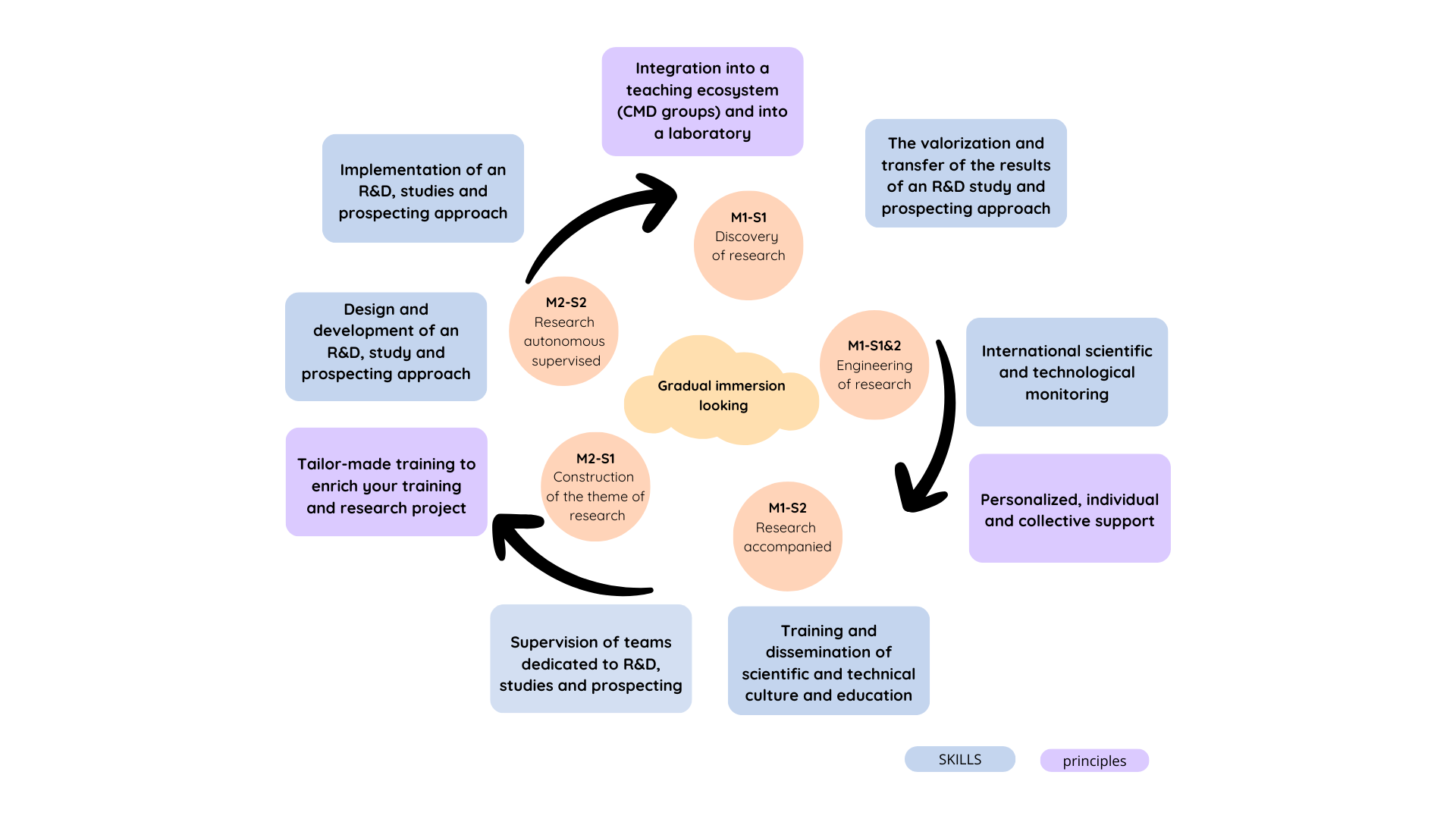
The educational framework aims to gradually develop research skills by offering diversified learning situations.
Progressive immersion in research is the foundation of the CMD according to this organization of the master:
According to the principles of the course:
This progressive learning of Research aims to develop research skills.
A Smart Computing engineer combines expertise in digital engineering and research. To acquire these two skills, the student follows the following program:
SoftWare:
AI/DATA
AI/Optimization :
- EU "Discovering research" (first semester): discover the players in research, their tasks, their production. Attend thesis defenses, interview research directors, laboratory directors. Observe and report on research in action.
- EU "Engineering for research" (first and second semester): integrate a research team and develop research prototypes as a research engineer. Acquire engineering skills, understand how new knowledge is validated.
- EU “Research in DUO” (second semester): Join a research team and develop a research proposal with a doctoral student supervised by a research director.
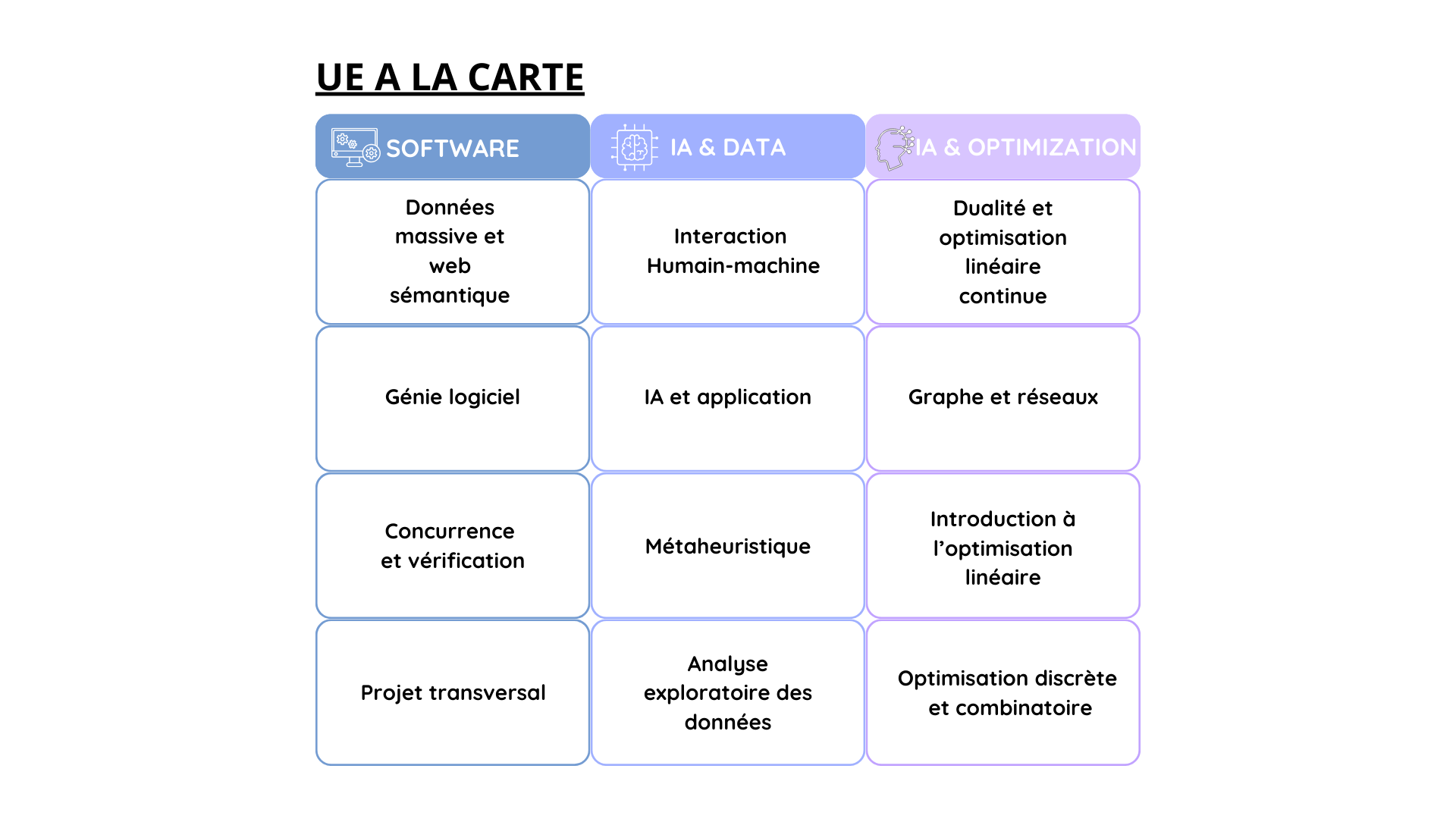
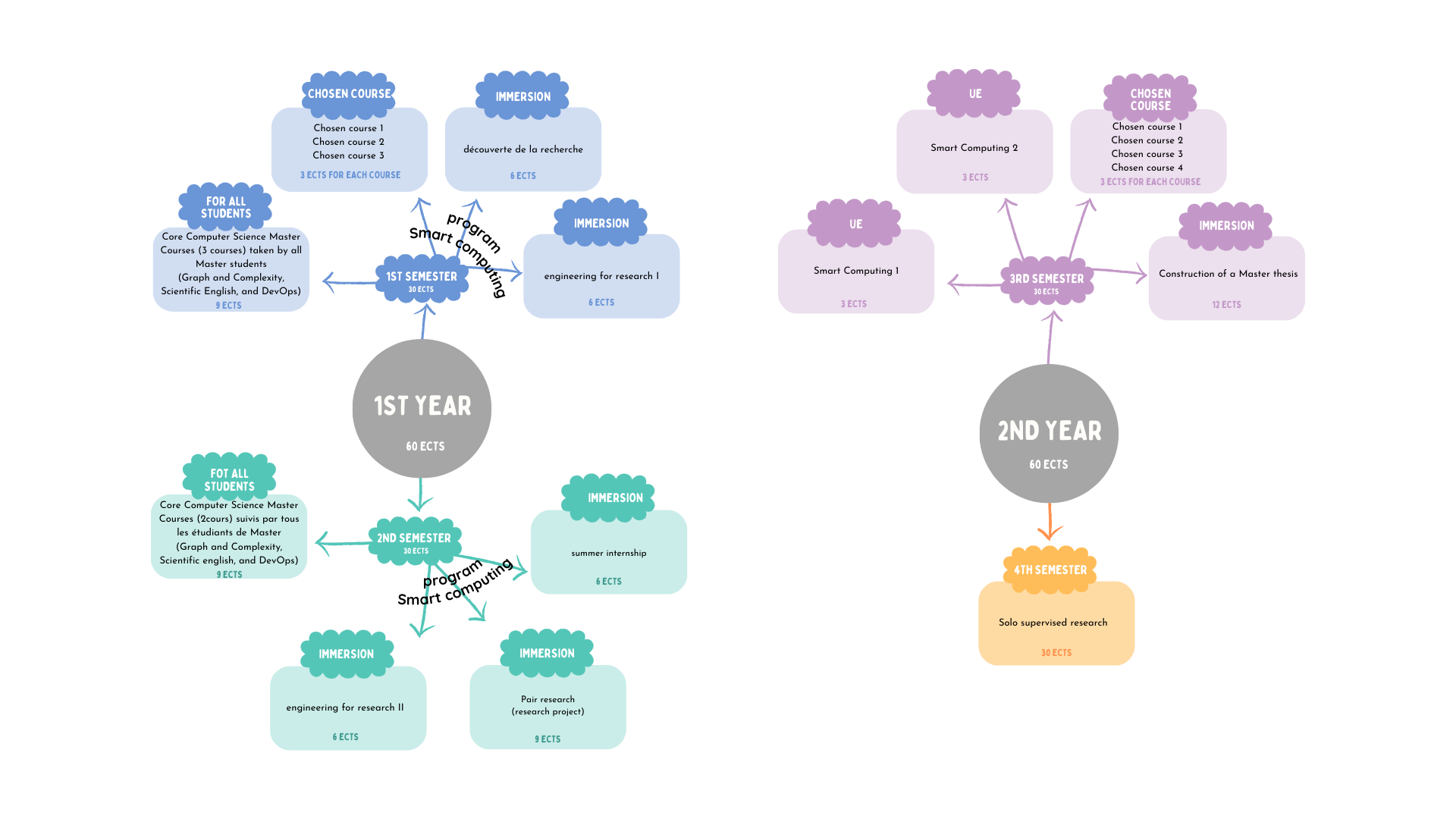
The SMART CMD aims to develop skills in engineering and research.
The Master's degree in Computer Science delivers skills defined at the national level for a Master's degree in Computer Science, as well as part of the skills defined for research, as shown in the figure below:
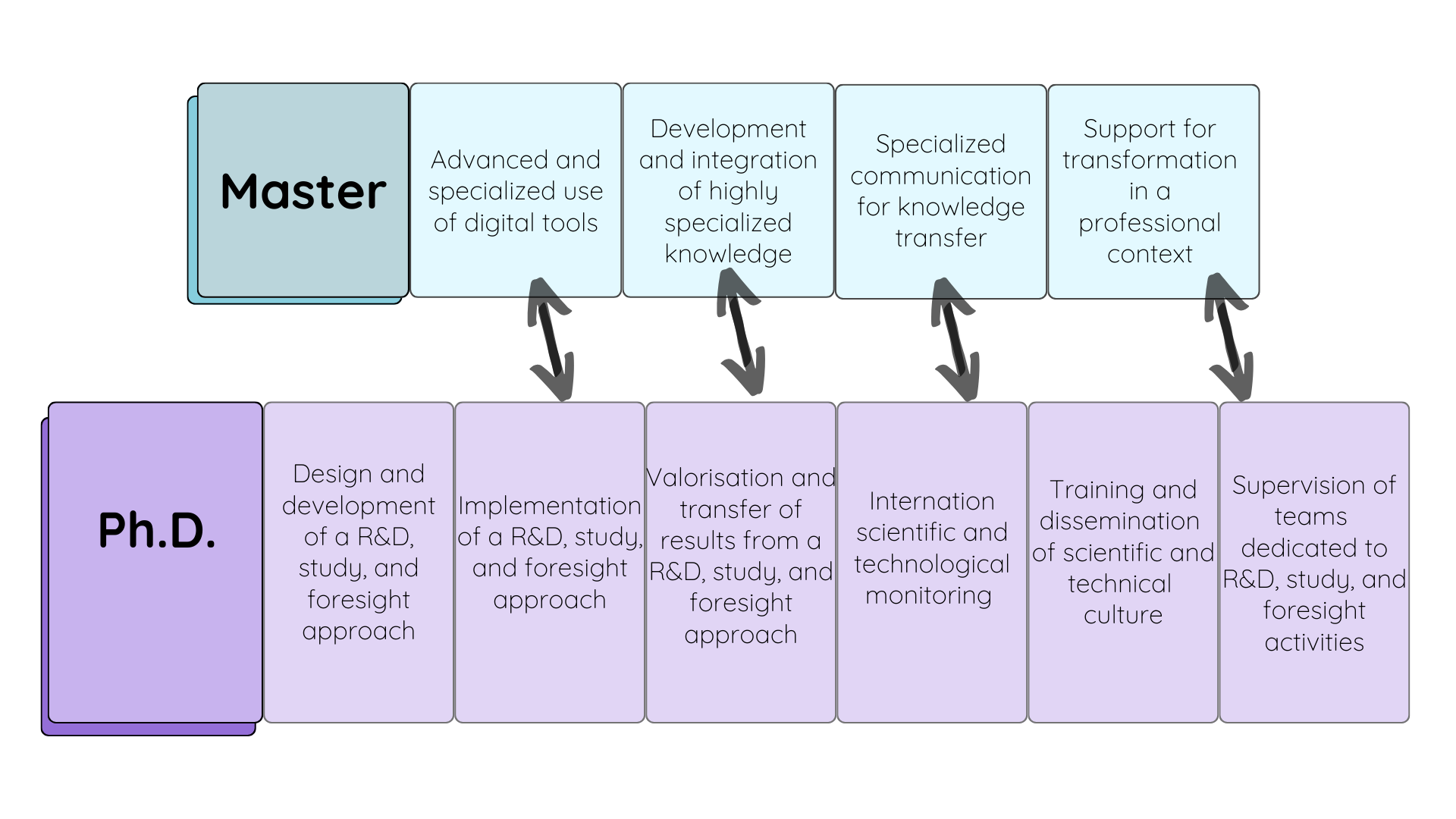
The expected skills for a master in computer science are:
These skills are acquired through participation in the fundamental master's courses in computer science (30% of ECTS). Learning research also actively contributes to these skills in the professional research context.
The expected skills in research are:
These are intended for the doctoral level
After the Master:
After the Doctorate:
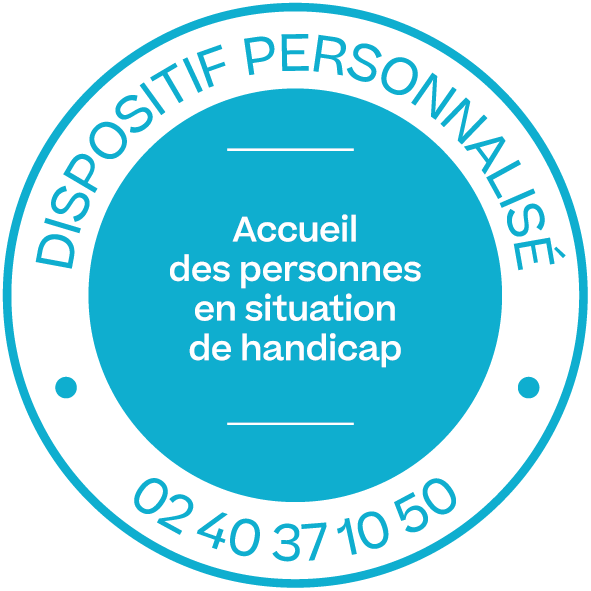 L'ensemble des formations est accessible aux personnes en situation de handicap (accueil spécifique, locaux accessibles, aménagements de formation possibles). Pour plus d'informations, contactez le Relais Handicap.
L'ensemble des formations est accessible aux personnes en situation de handicap (accueil spécifique, locaux accessibles, aménagements de formation possibles). Pour plus d'informations, contactez le Relais Handicap.